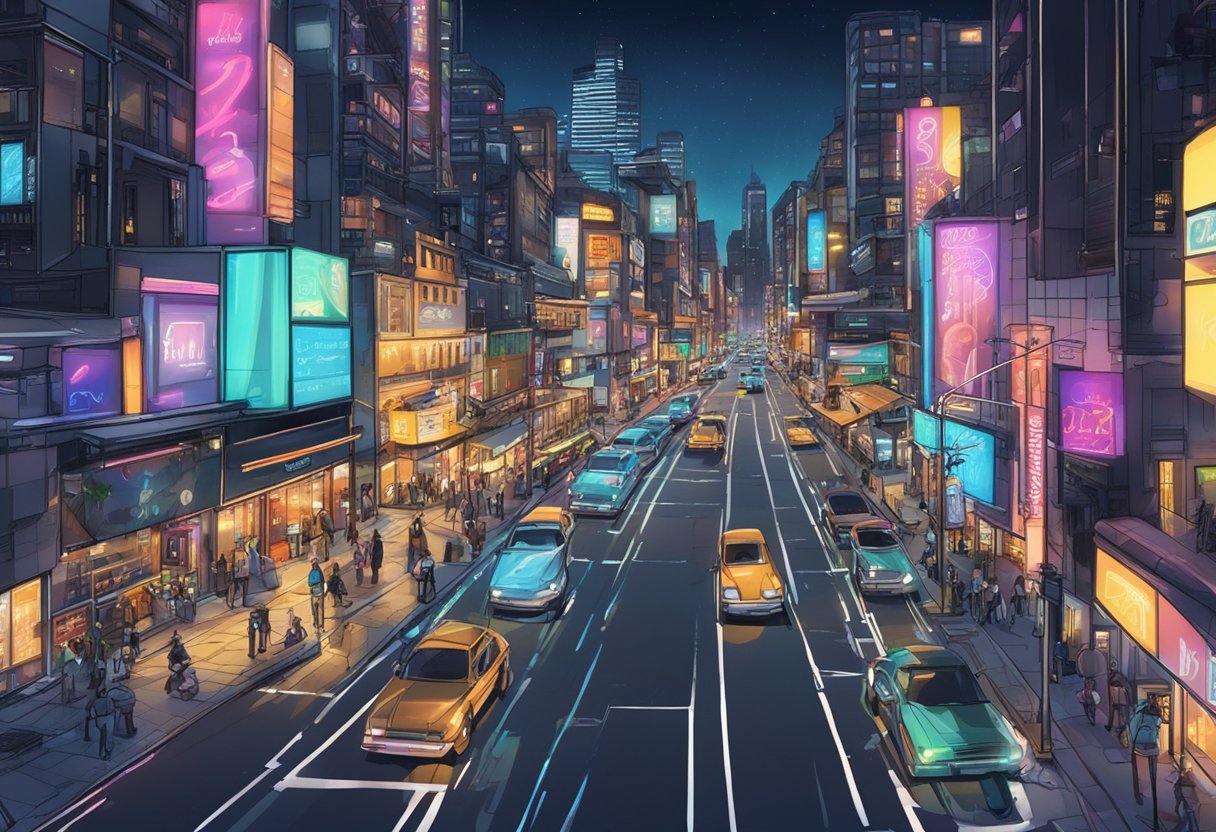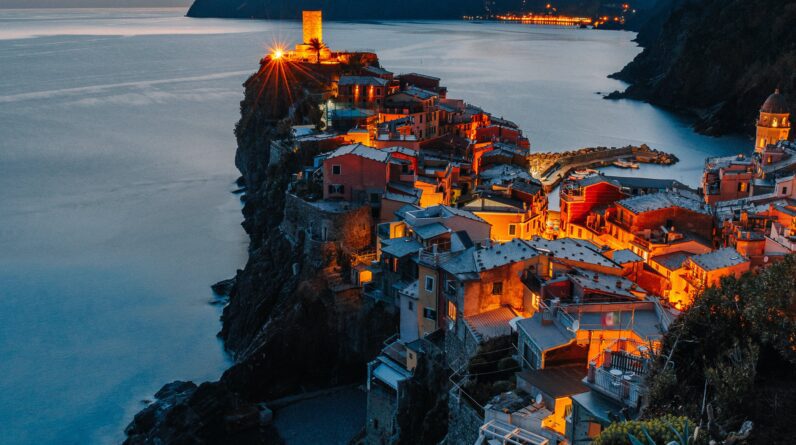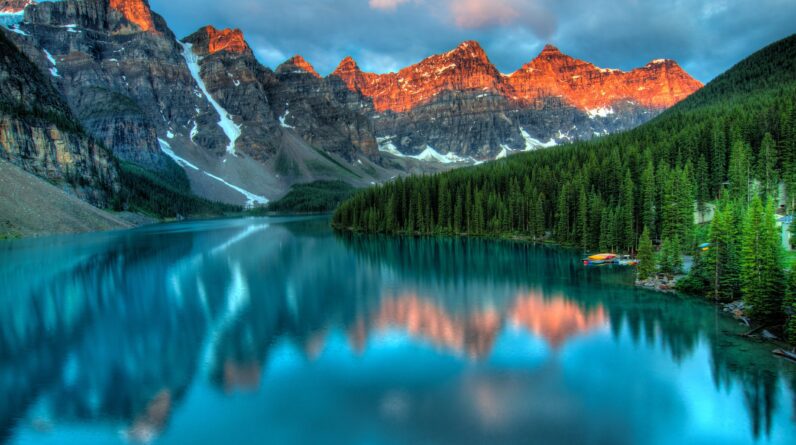When you’re wrestling with the question, “Is Munich or Berlin Better For Nightlife,” you’re diving into a dynamic debate that has intrigued party-goers for years.
Both Munich and Berlin shine as meccas of nocturnal fun, but they offer remarkably different vibes.
Deciding which city takes the crown for your perfect night out boils down to what kind of atmosphere you’re after.

Munich, the Bavarian capital, is famous for its beer gardens, traditional clubs, and world-renowned Oktoberfest.
The city offers a more laid-back atmosphere while still boasting lively venues where you can enjoy German brews, live music, and dancing.
On the other hand, Berlin, the country’s capital, is renowned for its cutting-edge electronic music scene and eclectic mix of clubs.
It presents an edgier, more avant-garde experience for those interested in exploring the underground subcultures and all-night parties.
Of course, both cities have a charm of their own, and the decision of which is better for your nightlife experience boils down to personal preference.
Whether you’re seeking a traditional party scene or looking to dive into the heart of alternative culture, there’s a place for you in Germany’s bustling nightlife.
Key Takeaways
- Munich offers a laid-back party atmosphere with a focus on traditional clubs and beer gardens.
- Berlin provides an edgier and more avant-garde nightlife experience, featuring an eclectic mix of clubs and electronic music.
- The choice between Munich and Berlin for nightlife depends on personal preference and the type of nightlife experience you’re seeking.
Historical Context

When exploring Munich or Berlin’s nightlife, the rich history of these cities can greatly enhance your experience. In Berlin, World War II still casts a shadow over the cityscape, with sites like the Berlin Wall Memorial and Checkpoint Charlie serving as somber reminders.
But in contrast, the infamous Berlin nightlife has emerged as a resilient symbol of the city’s defiant spirit, reflecting a unique blend of both past and present.
Strolling through the bustling streets, you’ll encounter iconic landmarks such as the Brandenburg Gate and the Reichstag, both of which are steeped in history.
The East Side Gallery, a series of thought-provoking murals that cover the remains of the Berlin Wall, is another must-see for tourists seeking a taste of Berlin’s cultural past.
On the other hand, Munich, the Bavarian capital, enjoys a more traditional atmosphere, with a history that veers away from the turbulence of its northern counterpart.
Nevertheless, Munich is no stranger to sobering memorials, such as the Memorial to the Murdered Jews, ensuring that visitors maintain an appreciation for the city’s wartime past.
In summary, regardless of the city you choose for your nightlife escapades, the historical context will undoubtedly contribute to a deeper understanding and appreciation of the vivid contrasts in ambience and atmosphere that define each location.
Delve beyond the bright lights and bustling streets to uncover the complex layers that make each city so unique and fascinating.
Nightlife and Festivities

Munich Nightlife
Munich, the capital of Bavaria, is known for its traditional beer halls and lively atmosphere.
While exploring the city’s nightlife, you will come across numerous bars and clubs catering to various tastes and preferences.
Munich is famous for Oktoberfest – the world’s largest beer festival and traveling funfair which takes place every autumn.
The city’s beer gardens are perfect for meeting up with friends and enjoying a relaxing drink in an authentic and convivial atmosphere.
Munich is also home to numerous music venues and cultural events, immersing you in the rich history, art, and culture of Bavaria.
Berlin Nightlife
Berlin, on the other hand, offers a more diverse and cutting-edge nightlife experience.
Known for its vibrant and eclectic club scene, the city attracts students, artists, and music lovers from around the world.
The Berlin nightlife caters to a wide range of musical tastes, from underground electronic to modern art and live performances.
No matter what you prefer, you will find a fun and exciting atmosphere throughout the city.
Berlin boasts a variety of bars and clubs, some hidden gems and others well-known hotspots.
This city embraces its diverse and multicultural scene, creating a unique and unforgettable experience when you are out on the town.
So, whether you prefer the traditional charm of Munich’s beer halls and festivals or the eclectic and vibrant atmosphere of Berlin, both cities offer a fun and unforgettable nightlife experience tailored to your preferences and interests.
Art and Culture

Munich Culture
Munich is often associated with Bavarian charm, and is known for its stunning castles like the famous Neuschwanstein Castle.
This city has a rich history in literature and art along with a plethora of museums, theaters, and churches to explore.
Traditional Bavarian culture oozes from every corner and its food complements the overall experience.
Munich’s well-preserved architecture gives you a taste of authentic Germany.
Berlin Culture
Berlin, on the other hand, is a city with a deep connection to art, music, and history.
Its street art, galleries, and artistic neighborhoods make it a haven for art lovers.
The city holds an important place in World War II history, and its museums stand testimony to this fact.
Museum Island, the Berlin Wall, and the Memorial to the Murdered Jews are just a few examples of Berlin’s cultural significance.
Berlin’s multicultural and creative atmosphere sets it apart from Munich.
Food in Munich and Berlin
Munich is famous for its traditional Bavarian food such as pretzels, sausages, and beer.
The city offers a variety of street food, restaurants, and food markets that let you indulge in these local delicacies. The iconic beer gardens add local flavor to Munich’s culinary scene.
Berlin, though, boasts a more diverse food scene.
Here, you’ll find international cuisine and a vast array of multicultural foods alongside delicious German dishes.
Berlin’s numerous food markets and street food stalls make eating in the city an adventure.
Transportation
Traveling between Munich and Berlin is quite convenient, given their strong public transportation systems.
Munich’s airport and railway system are well-connected with other major cities, allowing for easy travel.
Berlin offers similar connectivity, featuring efficient public transportation options.
Cost of Living
In terms of cost of living, Berlin is relatively more affordable than Munich.
Munich, being a more traditional city, can be a bit expensive, but it still offers some budget-friendly options.
Berlin’s cost of living is generally lower, making it more accessible to visitors and residents alike.
Conclusion
In conclusion, both Munich and Berlin offer unique and rich cultural experiences.
Munich is more traditional, while Berlin is cutting-edge and diverse.
Whether you’re after castles, churches, or museums, these German cities have much to offer when it comes to art, culture, and history.
Your preferences will ultimately guide your decision to explore one of these captivating cities.
Frequently Asked Questions

What are the top nightclubs in Munich and Berlin?
In Munich, some popular nightclubs include P1, Harry Klein, and Rote Sonne. Berlin is known for its legendary clubs like Berghain, Watergate, and Tresor, which are famous worldwide.
Which city has a more diverse nightlife scene?
Berlin offers a more diverse nightlife scene than Munich. It is known for its edgy, alternative, and sometimes wild atmosphere, while Munich has a more traditional and elegant vibe.
How do the prices compare for nightlife activities in both cities?
Generally, nightlife in Berlin tends to be more affordable than in Munich. However, prices can vary depending on the type of venue and the specific event or party being held.
What are the public transportation options for nightlife in Munich and Berlin?
Both cities offer efficient and extensive public transportation options for nightlife. In Munich, you can rely on the S-Bahn, U-Bahn, trams, and buses. Berlin boasts a similarly well-connected network, including the U-Bahn, S-Bahn, trams, and buses. Keep in mind that some routes and lines operate 24 hours on weekends, making it easy to explore the nightlife without worrying about transportation.
Which city has more late-night dining options?
Berlin has more late-night dining options than Munich, with a wide variety of international cuisines and street food available throughout the night, catering to night owls and party-goers alike.
How do locals compare the nightlife experience in Munich and Berlin?
While Munich offers a more traditional and upscale nightlife experience, Berlin is known for its alternative vibes and round-the-clock party culture. The preferences of locals might differ based on individual tastes, but both cities offer unique and memorable experiences in their own right.







